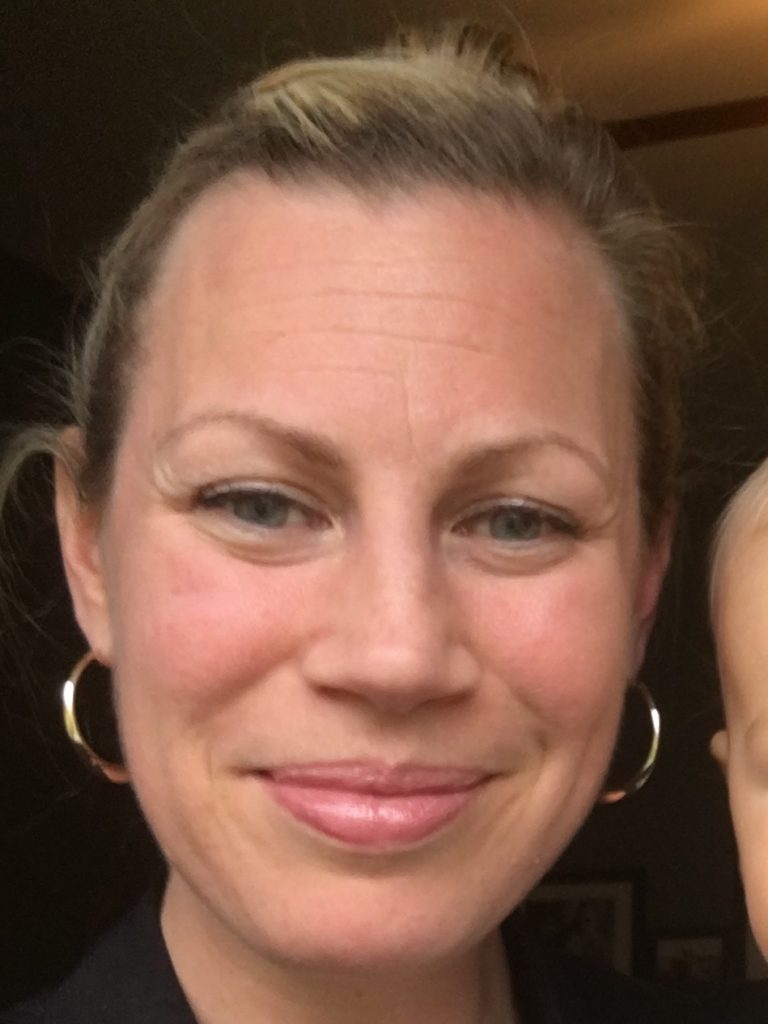Most of my guests on The Leader Assistant Podcast are assistants or former assistants, so I’m excited to hear a different perspective on the show.
In this episode, I chat with my wife Meghan’s long-time friend, and former Purdue pole vault teammate, J Ballentine.
J was in corporate America for 11 years, then left to start her own business.
We talk about hiring assistants, managing assistants, as well as public speaking.
In fact, I love this quote regarding public speaking from J:
“Be structured in how you prepare, but organic in how you present.”
LEADERSHIP QUOTE
Leadership is an action, not a position.
– Donald McGannon
About J Ballentine
Mom, entrepreneur, former pole vaulter and foodie.
After spending 11 years in the corporate world, J decided to act on a long time urge to start her own business. Since opening and then closing her first business, she’s had a passion for digital marketing and online business.
She’s currently vetting out her next business and taking time to enjoy life with two little kids.
Check out J’s foodie Instagram account, if you like food. 🙂
SUBSCRIBE
Subscribe to The Leader Assistant Podcast so you don’t miss new episodes!
You can find the show on iTunes, Spotify, Google Podcasts, and Stitcher.
Join my email list here if you want to get an email when a new episode goes live.
JOIN THE COMMUNITY
Join the Leader Assistant Facebook Group here for bonus content and to network with other assistants who are committed to becoming leaders!
LEAVE A REVIEW
If you’re enjoying the podcast, please take 2 minutes to rate and review the show on iTunes here. Each review helps me stay motivated to keep the show going!
—
EPISODE TRANSCRIPT
Speaker 1 0:00
Thank you for listening to The Leader Assistant Podcast. Today’s leadership quote comes from Donald mccannon leadership is an action not a position.
Speaker 2 0:13
The Leader Assistant Podcast exists to encourage and challenge assistants to become irreplaceable game changing leader assistants
Jeremy Burrows 0:24
will listen to episode 14 Somebody has the hiccups. In here’s your host, my dad. Hey, everyone. Thanks for tuning in to The Leader Assistant Podcast today. I’m excited to have Jay Ballantine, on the show. Jay is a longtime friend of my wife. She went to Purdue University with my wife, and she’s been in the corporate world for 11 years and currently is a mom, entrepreneur. She was a former pole vaulter with my wife and she’s a self proclaimed foodie. So Jay, thanks so much for joining me on the show.
Unknown Speaker 1:10
Thanks for having me.
Jeremy Burrows 1:12
Most of my guests have either been assistants or are currently assistants. And I’m really excited to hear a different perspective for today’s episode. So yeah, tell me a little bit about any interesting interactions with assistants, or maybe even just talking about the general perception of assistants in offices that you worked in?
Speaker 1 1:36
Well, all of my corporate time kind of comes from one organization. And, you know, I don’t think we ever referred to certain individuals as assistants, that wasn’t necessarily like their role. But we had some office managers, some administrative experts in certain departments, who I think absolutely fell into that type of that type of role. So there was one individual that I did have a chance to work with, as we both reported into the same executive. And from time to time, we had a few common projects that we would collaborate on. And there were other times that we were supporting the same individuals within the company. So yeah, we had common projects, different times to collaborate together. I don’t think I have any funny stories or anything, but I definitely had my time working with those types of roles.
Jeremy Burrows 2:38
So let’s take an office manager, for example, because a lot of times office manager is essentially an administrative assistant. How did you have any interactions? Or was there? Was there a general like, oh, the office manager was very helpful and part of the team or were there were there certain executives or certain people that might have, you know, not respected them? Because of their role? Did you see anything like that?
Speaker 1 3:06
I think the perception was always very positive. And the and a lot of that came from the fact that these individuals had these great personalities that kind of demanded that respect. And they were always so helpful, and so supportive to the others in their particular office or their department that I don’t think people even looked at that particular title. They just knew that that was some of that they could count on. And so that’s where a lot of the respect came from.
Jeremy Burrows 3:39
Awesome. So to transition a little bit you went from you decided to leave a corporate world and start your own business. Tell us quickly about, you know what your business was.
Speaker 1 3:52
So I opened up pure cravings was the name of our business. And it was a paleo clean eating vegan vegetarian meal prep company. So it was a very interesting company in the sense that we were an online store that was locally focused. And at the time that we kicked this off, there really was nothing like it in our area. So it was exciting to be doing something that in our particular geography was very unique. And then to put the the tech spin on it, where someone could go online to get a ton of information about their meals, not just here’s a menu for this week, but a lot of background information on the nutrition, the portioning. We put a lot of care into the information that we had online and a lot of care into the technology that surrounded the website. Part of that was to give me some analytics and part of that was to really have this great customer experience, that was something that was important to me. So that was the business. And, you know, I’d always wanted to own a business to put my, my personal stamp on something. So that it always been this urge of mine. And it was a tough decision to leave the corporate world because there’s, there’s such vulnerability, right and leaving something that is that is stable, to do something that you don’t really know how that’s gonna go. But I felt like we had this great opportunity. And that that opportunity came from kind of a test project, if you will, that really told us there was a demand for this. And so things kind of came together. And the real compelling event, I guess, you could say was, my daughter was born around the same time. And I had been working for almost about a year of her first life or her first year. And, you know, I kind of just felt like, this is the time, you know, it really got me thinking about what am I going to do with my future? How do I want to be there for her and wanting to be a great example for her of kind of following your passions and taking risks and chances. So that all kind of came together into making that leap into starting my own business?
Jeremy Burrows 6:36
So you mentioned, we talked before you said that you had to hire assistants, and this kind of a role? Is there maybe a little bit of high turnover? So how did you find and hire assistants? And how did that? What did you learn from that process?
Speaker 1 6:54
I did, I had a variety of assistants. And I was really looking for someone just to help take some, some work off of my plate and support all the many things I’ve been doing. And for any entrepreneur out there, you know, there’s like such a great weight on your shoulders, because you’re doing so many different things and changing gears quite often. So I would use first and foremost, the network of our friends and family to see if there was anyone that kind of fit what we were looking for. And we were always looking for part time work. And I was always conscious of trying to find people that, you know, wanted that flexibility in their life, which was what kind of drew me to running my own business. So I wanted to offer that to them as well. So part time was, was kind of great for that. So we really comb through our own personal networks. And then we also used some of the job boards as well. So indeed, was one that helped me go through some recruitment. And those were kind of the primary ways that we that we found people.
Jeremy Burrows 8:10
Okay, so what kind of how did you fail in that? Were there some people that you hired, and then you like, quickly realized that was not a good fit?
Speaker 1 8:21
Yeah, yeah, there were. There was no one that I felt I failed on, like, immediately. I think it took a little bit of time for for me to see like, Okay, I don’t think this is this person is going to be a long term correct fit. So, you know, I think I did, I did, okay, in finding people to kind of jump in. But I don’t think I did a great job finding people that could really handle the workload of what we be needed. So that was something that was kind of tricky, and pushed me I guess, out of my comfort zone in, in recruiting and asking the types of questions to really dig in and find the correct type of experience to plug into what we needed. I mean, there’s nothing like when you’re running your own business, you can probably relate to this, there’s things that you do so well. And so naturally, it also exposes those things that you need help with. And so I think that’s what I was looking for with assistance was, you know, I’m good at A, B, and C, and I’m looking for someone to fill in with some of these skills that aren’t as natural to me to help me with this workload.
Jeremy Burrows 9:50
So, when you were running your own business, how did you involve your husband and your family in your, in your business, or did you
Speaker 1 10:01
Yeah, I think they were 100% sucked into the business, whether they liked it or not. But no, it was great to have them involved. You know, my husband has worked his job throughout, you know, this whole experience. So he had his time constraints, obviously, and what he could do to help. But, you know, we kind of approach it the same way, you know, there’s a certain set of things that are, that I’m really good at doing. And there’s other things that he is excellent at doing. So he, for example, was a great sounding board, for me to talk about some of the common processes that we went through whether it was, you know, a business process or something cooking related. And he has a Six Sigma Black Belt background. So he’s fantastic at kind of, you know, listening to someone talk about a particular process, and helping you identify where you can make things more efficient. So he was great plugging in with different skill sets like that to help out. And then my daughter was along for the ride, my little sidekick, you know, she was accompanying me on sales meetings, checking in with partners, going shopping, making deliveries, I mean, she was with me all the time. And that’s what kind of drew me to starting a company, just that flexibility was, was so important to me. And, you know, she was part of the face of, of the company as much as I was. And I think that having her around, really helped it led to this, this personal sense to the business, you know, by by making it kind of feel family friendly. So I loved having them involved with it.
Jeremy Burrows 11:57
When you’re running your own business, I, you know, I’ve been talking to a lot of business owners, you know, work at a start up right now, startup life, I actually just talked to an EA that just switched transitioned from an EA to helping run a new startup company. And she was saying that the world of being an EA is so you know, there’s so much change, it’s so fast paced, there’s never a dull moment that, you know, going into the startup software world was not that crazy of a jump. So part of the the reason that I’ve seen it, you know, I’ve experienced personally where I’ve burned out and just work too much, you know, assistance, a lot of times we have to be on call 24/7 and different different seasons, we have a hard time turning our email off, or our Slack instant message off. So one thing I’ve learned is that I need to have a hobby, and that was part of the reason I burned out in my last job is I didn’t have a hobby. So how, when you’re running your own business, and even to today, did you have a hobby during that time? Did you kind of give up on your hobbies? And then how important do you think it is to to make time for a hobby?
Speaker 1 13:18
Oh, I think it’s incredibly important. And it’s something that as a mom, I have to be very conscious to insert that time into my day or into my week. And for me, part of that is just having some structure to my day. So when I was running my own business, I don’t think I really had a lot of hobbies, to be honest, just as you described with some of the individuals you were talking to in the startup world, it is super fast paced, and you kind of can plan certain things and you can’t plan others. So during that phase, I feel like I was plugging just all of my energy into the business and I guess creativity in general is perhaps a hobby of mine. So coming up with the menus and the food and a lot of the artistic side, that kind of gave me a little bit of that didn’t feel like work, I guess I could say today, I would say my hobby is a very, very new one. I caught the bug of indoor cycling spin classes. And I’ve only been doing that for about six weeks now. But it is amazing to have that feeling of you know, looking forward to doing something by yourself and wanting to make yourself better. So that’s been really fun to do that. And it’s the first time I’ve kind of had one Like, you know, a new hobby, something that, that I have to learn a bit about to work out and improve at. So that’s been really, really good for me.
Jeremy Burrows 15:09
Awesome. So can you can you give an example of something you’ve seen an executive do really well when working with their assistant.
Speaker 1 15:19
So I would say, someone who can, you know, have their dialogue, and at the end, stop and just quickly summarize, so that the person they’re talking to their assistants, or whoever that audience is, can kind of backtrack through what was just fed to them. And kind of get the high points again, because I think that really helps people to remember what it is that that executive or that leader is saying, and I guess we can apply that to, you know, all conversation in general, when I think of some of the best leaders that I worked with. That was something that I thought was very, very helpful.
Jeremy Burrows 16:02
So kind of recapping the why. So that they really remembered the lie, and could go figure out the how,
Speaker 1 16:09
yeah, and I can relate to, you know, being in that leadership role from when I ran my own company, that your mind’s going in a million places. And so when you do have a check in with your employees or your assistant, you know, oftentimes you’re like, Okay, here’s the things that we’re, we need to focus on this week, here’s the priorities. And then you might have, you know, you might go down a bit of a rabbit hole, because you remember something else that needs to be thrown in there. And so I think if you don’t quickly summarize, it can be very hard for the person that you’re talking to your employee to really be able to intake that and in a proper way and make sense of it.
Jeremy Burrows 16:50
So what’s the tip, one or two tips that you would give executives to help them get more out of their system?
Speaker 1 17:01
To get more out of their assistants? Well, I think leaders should really empower their employees empower their assistants and not manage a checklist. I think that’s something that’s really important. I think, when a leader or a manager of any kind, does that, I think that makes it difficult for the employee to be able to kind of think on their own, because they’re always thinking, Okay, I need to make sure that I do this, this, this, this, and this, when I think realistically, as a leader, we want our employees to be able to hammer through common tasks that we know are prioritized and important, but also to be able to use their own ingenuity to kind of know what else they need to do. And I think by a leader managing a checklist, I think that hinders that with their employees. I don’t know if I’m describing that in the right way. But would you agree with that?
Jeremy Burrows 18:07
Yeah, I think you’re basically micromanaging. Right? Like, yes,
Unknown Speaker 18:12
yeah. Yeah,
Jeremy Burrows 18:13
they shouldn’t be micromanaging, you know, and part of micromanaging or a one way that micromanaging can manifest itself is, here’s a very specific 25 point checklist. And you needed to go through every single point. You know exactly how I say it, as opposed to, like we talked about earlier, like, here’s what, here’s what we’re trying to do. Here’s why we’re trying to do it. I trust you to figure out how and if you need help, I’ll empower you to, you know, get to the next step. But yeah, no, no micromanaging?
Speaker 1 18:44
Yeah, I think that freedom to accomplish, the expectations that have been set forth is incredibly important. And not always easy to do, but I think is important. Yeah.
Jeremy Burrows 18:58
What about assistants, what have you seen? assistants do really well.
Speaker 1 19:05
One of my assistants that kind of comes to mind here, had a knack for bringing ideas to our check in meetings that I hadn’t thought of. And it was great for me because it allowed us to collaborate and get my wheels turning in a direction that they weren’t going before. And that just really helped with different strategies and projects that we were working on. So just that preparedness, and the ability for that person to use their creativity to apply that to business problems. was super helpful. So you know, it was almost kind of an an anticipation of what this assistant needed to kind of guess I might need and in conversation, it’s like, okay, well, that one right there. That was great that idea and we can apply that to this other issue that we have. So when I think of this individual and that trait that was probably one of the, the best ones that I had of the bunch.
Jeremy Burrows 20:10
So what’s a, what’s a productivity hack that you can’t live without?
Speaker 1 20:17
My husband gave me a hack many, many years ago. And I used it throughout my time in the corporate world. And it was to create an Excel sheet. That was basically a to do list and it was conditionally formatted, it was set up for sorting and filtering. But basically, it was just a list of whatever I needed to do. And I would just put a number next to it, I think I use one through four, one through five, one being the most prioritized tasks that I needed to do at the moment. And as I went through the day, I would mark things off as not started completed work in progress. And I could continually sort and filter this list so that when I quickly looked at the Excel sheet, I knew exactly what I needed to be working on. And that personally helped me to really stay on track. A totally geeky approach to the to do list, but the ability to sort and filter just helped me tremendously. And I guess good old fashioned rules in my inbox. So taking a little bit of time to set up what happens to a particular message If a word is in the subject or the or the body or if you know, a message come from a particular person where it’s moved to if it’s marked a certain way, that allowed me to again, just prioritize what I needed to look at what I needed to take action on. And so those are two tips Actually, both came from my husband, that I was able to apply in the corporate world and running my own business that stuck with me, and have actually helped others when I’ve recommended some of those ideas, too. So those are some favorite hacks.
Jeremy Burrows 22:11
Nice. That’s pretty much how I run my life is filters. You know, they call them labels and filters in Gmail, but the same thing is rules and Outlook, but pretty much my whole work. And even side hustle and personal world is run by filters in my inbox. And then I have a two column, Google Spreadsheet, that is my to do list and same deal. I have, you know, color highlights for certain things and, you know, conditional formatting, and you know, consorted and filter it and I just all these new software, all this new software and tools for, you know, managing your tasks and everything. There’s Trello, and asana and all these different tools. I’m like, You know what, I just take my old school spreadsheet in my email inbox, and I’m good, you
Unknown Speaker 23:04
feel the same way.
Jeremy Burrows 23:06
So what do you think makes someone a leader?
Speaker 1 23:10
When I think of the best leaders that I’ve worked with, they’ve been people that have had great vision, they can communicate that vision. And they take the time to make you feel important, no matter what level of the company, their time with you, they make you feel like nothing else in the world is stressing them out that they’re paying full attention to you. And they have a great quality of really inspiring the best in you. And I think, you know, there’s absolutely managers out there that might bring out some of the best in us, but sometimes that comes from, from fear. And I think some of the best leaders can inspire your best in more positive ways.
Jeremy Burrows 24:05
Let’s talk a little bit about you’ve done your fair share of public speaking and presentations, you obviously had to do a lot of that and in you’re running your own business and trying to sell to people and also in the corporate setting. So what’s kind of a tip or tactic or trick that you would share with assistants who want to improve their communication skills, because a lot of assistants can, you know, we’re behind the scenes a lot. Some of us are introverts like myself, and have, you know, took a while to kind of come out of our shell and, and really present things and improve our communication. But I think that it’s very important if an assistant wants to be a leader, to be a good communicator, be at least growing in their public speaking abilities. So yeah, what’s a what’s a kind of Tip for that realm.
Speaker 1 25:04
I think the tip I would suggest is to be structured in how you prepare, but organic and how you present. And what I mean by that is by putting in a bunch of time to learn and prepare for whatever subject you’re going to be talking about, do all that work upfront. So you know that subject as best as you can. So then when it’s time to communicate and present, you can just kind of go with the flow. And I guess for me, personally, you know, I like to have an outline, that’s part of my preparation process. And it gives me a way to kind of capture okay, what topics do I want to talk about? What should I be ready to discuss? And potentially, what order are those subjects going to go in, and how in depth should I go, because how you know, the number of topics how in depth you go, that kind of relates to the amount of time you’re going to have to speak. But I’m definitely not the kind of person that has like a word for word plan of exactly where I’m gonna go, I really just like to get up. And I don’t want to say winging it, because you have that that preparation under your belt. But like I said, being organic and how you present is kind of reading your audience. And, you know, you might be communicating where you can look at someone eyeball to eyeball and get that feedback of if they’re receiving the topic if they understand it. But sometimes we have to kind of read the audience in other ways when we can’t look at them if we’re over a webcast environment or on a phone call. And that might mean that we need to build in some questions to to observe our audience. But definitely to be as organic as possible, because you might have to shift you might have to spend more time on a topic or you might need to gloss over something. But with that preparation behind you, I think that gives you the vehicle to go where you need to go when you present.
Jeremy Burrows 27:12
That’s perfect. I love it. I think I’m ready to go. I’m ready to go do a presentation right now. Awesome. So let’s let’s close with one final question. If you if you’re going to interview for an assistant, and they are walking into your office in 10 minutes for the interview? What’s one or two questions that you just feel like you would have to ask?
Speaker 1 27:39
That’s an interesting one. I want to know what their their past experience is working in some type of role where maybe they didn’t get the limelight, but they were supporting somebody else. Because I think that I’ve interviewed a bunch of people that didn’t necessarily have the exact history that plugged into the role that I was looking for. And somebody did that on purpose. So yeah, I think I would, I’d want to know, you know, what, what particular traits they had that plugged into what I was looking for. So I’d ask about it in particular. You know, what they would do what they’ve done in the past to support people when they haven’t been in the limelight, if they’re comfortable kind of working behind the scenes? And secondly, I’d want to know what motivates them. And for them to share examples of that. And if I didn’t get a good answer to that question, I think I would ask them, you know, in, in previous jobs, what motivated you what, what made you feel good in that particular job, what got you excited to go to work, and then I could start to see if, you know, they would be a good fit.
Jeremy Burrows 29:02
Love it. I actually I said there, that was gonna be the last one, but actually have one more. So a lot of assistants that I’ve talked to are really excited about, you know, have all these ideas and starting their own business. So what’s kind of a one or two sentence advice that you would give to an assistant who is thinking, you know, what, I think I want to start my own business, maybe it’s on the side, at first and then eventually grows to where they can do that full time or, you know, whatever it is, what what’s a some advice you would give in just general starting your own business?
Speaker 1 29:38
I’d say if you have the feeling to do it, you should dive in. Because I always thought Why did I wait so long? Because even though it had its challenges, it was so rewarding to again, put my stamp on something and to bring an idea to fruition. So I think if someone has that have that thought in their head to do everything they can to make it happen. The other thing that I would suggest to someone considering starting their own business is to think your support system, and to not carry the load of starting a business. On your back alone. Do you have someone else in your industry that might also want to start a business? So who could you partner with, to really help fill in with skill sets that you don’t have, so you can kind of find this perfect marriage of skills to get everything done that you need to do to get that business up and running.
Jeremy Burrows 30:43
Awesome. Well, thanks, Jay. I really appreciate you taking the time and sharing your insight with assistants all over the world. And yeah, we’ll, we’ll let everybody knows where the show notes are. And is there anything that the listeners can do to support you, follow you on Instagram, anything like that?
Speaker 1 31:04
I have an Instagram account called paleo kitchen SPIRATION. And we’ll have to like type that out into the show notes for everyone. That’s a place that they can find me and for anyone else. That’s a foodie out there. I have different recipes and food ideas that I post there. So that’s a great place to hunt me down in social media.
Jeremy Burrows 31:28
Perfect. Well, thanks again for taking time out of your day and we’ll talk soon.
Unknown Speaker 31:32
Thanks for having me. I appreciate it.
Jeremy Burrows 31:34
Thanks for listening. check out today’s show notes at leader asst.com forward slash 14. Also, make sure you join our Facebook community at Facebook dot leader assistant.com.
Hopefully dad out and leave a review on iTunes. Go bulls.com







